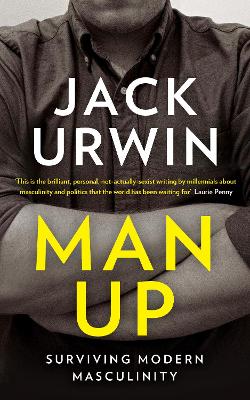Reviewed by celinenyx on
This book is very much influenced by modern feminist thought, and it was refreshing to read about masculinity in a way that is compatible with female equality. Some sections especially reminded me of a few of my male friends, which underpins the book's social relevance to me. I think Urwin has chosen to cover important topics (including consent, abuse, and aggression) in an accessible manner.
I don't agree with everything he writes - his emphasis on the need for a father figure for boys comes a bit too closely to biological determinism. Why do boys necessarily need a (strong?) male figure to 'inspire' them? Do boys without a clear father figure grow up 'lacking'? Can a a woman not play this role?
Additionally, I feel this book could occasionally benefit from professional psychological insight, as it deals with mental health, and I feel these sections could be more in-depth. Yet I think Urwin's argument is formulated clearly enough to be incredibly useful to many people, and I hope it highlights the problematic nature of masculinity to people who might not come into contact with this kind of material in other ways.
Reading updates
- Started reading
- 6 February, 2018: Finished reading
- 6 February, 2018: Reviewed
